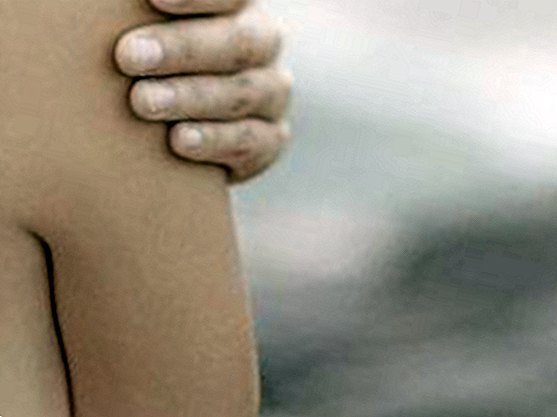Expert interview: You can do that with skin problems during cancer therapy

 © Ron Chapple Studios / Thinkstock
© Ron Chapple Studios / ThinkstockChroniquesDuVasteMonde.com: What Skin Problems Do Women Have Frequently During Breast Cancer Therapy?
Dr. Diana Lüftner: The skin problems depend on the type of therapy. Any form of systemic therapy (whether chemotherapy or biological therapies) hinders normal cell division and thus the regeneration of the skin. The result is a barrier disorder, the first result is itching and skin dryness. If biological therapies are also used (this is especially the case with metastatic breast cancer), acne-like pimples can also occur on the face and in the T-zone.
What do you recommend for the individual skin problems?
In pimples, or more precisely in the acne-like rash, is treated as in a classical acne, d. H. locally dehydrating and in combination with antibiotics in tablet form. Due to the strong UVA light dependence, very good photoprotection, i. SPF 50+ with the highest possible UVA protection PPD greater than 18, recommended. Dry skin requires a high quality skin care, which in particular enhances the natural barrier function, thereby preventing water loss and reducing itching.
During chemotherapy, the so-called hand-foot syndrome can occur. How can you alleviate the symptoms?
The hand and foot syndrome occurs under two specific substances or chemotherapeutic agents: Caelyx and capecitabine. Hand-and-foot syndrome, depending on its severity, distinguishes between several clinical characteristics that affect the patient's activities to varying degrees: from numbness, bizzulas and swelling (grade 1, no interruption) to painful erythema and hyperkeratosis (grade 2, impairment ) to blistering and severe pain (grade 3, severe impairment of daily life). The measures depend on the severity and are to be determined individually. Preventive helps foot care, soft footwear and intensive skin care with lipid-containing creams. Therapy breaks and symptomatic measures such as cooling baths, occlusive dressings and other externa are also used.
Are fragrances or parabens a problem for the skin during a therapy?
Everything charming should be left out. Special cosmetics (here the attending physician or dermatologist advises) meet special requirements with regard to compatibility even with sensitive or irritated skin. It is also particularly important that the active ingredients used are optimally combined and formulated to arrive in the damaged area of the skin.

Dr. As an expert on oncological issues, Diana Lüftner advises the cosmetics brand La Roche-Posay, which is intensively researching medical skin problems.
How do patients best care for their scalp after hair loss?
For this I have my colleague Dr. Rainer Richter asked, since I have been working in oncology for 20 years, but I am not a hair loss expert in dermatology. He says: Therapy-related hair loss has multifactorial causes. It can be counteracted by a targeted diet, reduction of mental stress and targeted vitalization and care of the cells. Especially for women, there are active ingredients that have a positive influence on hair density and hair weight, as well as systemic dietary supplements that ensure the optimal and holistic care of the hair follicle. This can potentially reduce hair loss. Such "cures" should begin 8-12 weeks before therapy to counteract the expected hair loss. They should be continued after the end of the therapy if the scalp is no longer irritated by the therapy itself. An irritated scalp can be treated with a thermal water spray, which can significantly reduce the redness and irritation due to its high concentration of soothing minerals.
What do you recommend in the care of scars?
The care of surgical injuries and scars will depend on the individual case. It is always important to reduce scar formation that wound closure occurs as early as possible in the complex course of healing. This prevents not only the risk of inflammation but also an unnecessary risk of scarring. The supply of wound healing process-promoting, calming, anti-inflammatory and healing-promoting wound care can be very useful if there is nothing against it from the individual surgical and wound healing situation.
What to do if the fingernails and nail bed are inflamed?
This is called 'paronychia'. Already before the start of therapy, a nail clip can be used, which can prevent the ingrowth and thus ignition of nails and nail bed.The treatment of the nail beds depends on the symptoms: For purulent, inflammatory changes is recommended treatment after antibiogram (a laboratory test to determine the sensitivity or resistance of germs to antibiotics), antiseptic, drying baths, purulent puncture and antifungal creams on suspicion on yeast infections are some examples of the range of treatment options. Also taping or splinting of the nail edges can help with paronychia.
Is sun protection important?
Sun protection is extremely important especially under biological forms of therapy: The majority of the light-induced damage under cancer therapies is caused according to the current state of knowledge mainly by therapeutics, which bring an increased photosensitivity to UVA rays with it. It is therefore important to use sunscreen systems which, in addition to the UVB protection (SPF 50+), ensure particularly high UVA protection (PPD greater than 18). In addition, it is known that this photosensitivity also continues beyond the therapy phase and thus prolonged use beyond the end of the therapy is recommended. In summary: SPF 50+, wearing a hat, staying in the shade reduce the side effects on the skin considerably.
What should patients pay attention to when applying make-up?
The covering of atypical skin lesions should be done with dermatologically acceptable clinical maquillage. Such preparations are characterized by extremely high compatibility, dispense with all unnecessary ingredients and are in terms of the cosmetic effect other products in no way. It is important that prescribed care is always first applied according to the instructions and then ensure that the used Maquillage are matched to the care products. The professional advice of a clinical beautician definitely contributes to a very good result.










